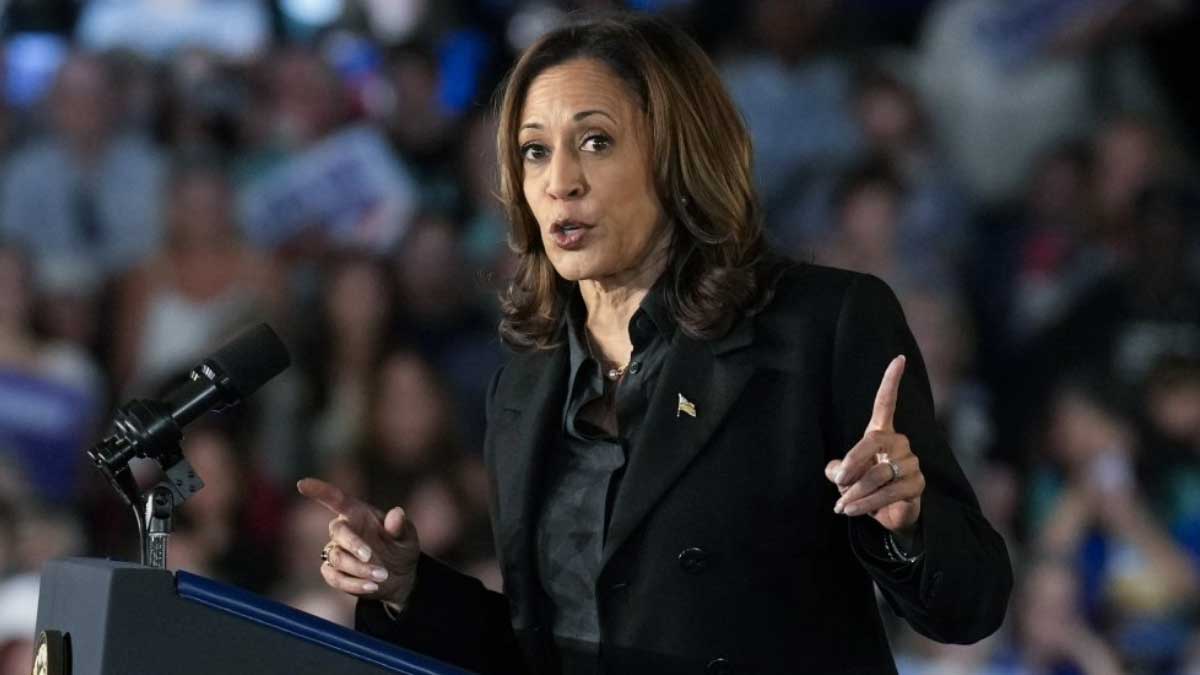- Home
- Billionaires
- Investing Newsletters
- 193CC 1000
- Article Layout 2
- Article Layout 3
- Article Layout 4
- Article Layout 5
- Article Layout 6
- Article Layout 7
- Article Layout 8
- Article Layout 9
- Article Layout 10
- Article Layout 11
- Article Layout 12
- Article Layout 13
- Article Layout 14
- Article Sidebar
- Post Format
- pages
- Archive Layouts
- Post Gallery
- Post Video Background
- Post Review
- Sponsored Post
- Leadership
- Business
- Money
- Small Business
- Innovation
- Shop
Recent Posts
Trump and Harris: Limited Impact on TikTok Ban

On Monday, a federal court heard arguments concerning the legality of the federal government’s proposed ban on TikTok, which could have significant implications for the popular app. Despite former President Donald Trump’s claims that he could “save” TikTok, and Vice President Kamala Harris’s nuanced stance, their influence on the outcome appears limited if the law is upheld. TikTok has challenged the law, asserting that it infringes on the company’s First Amendment rights. The legislation at the center of the controversy mandates that TikTok either divest from its Chinese parent company, ByteDance, or face a ban from U.S. app stores. Should the law be upheld, it is set to take effect on January 19, just one day before the next presidential inauguration.
Vice President Kamala Harris has yet to address the TikTok ban directly since its enactment, even though her campaign has leveraged TikTok trends for voter engagement. Previously, Harris expressed concerns about the app’s ownership while acknowledging its significance for users. In a March interview with ABC News, she stated that while the administration had national security concerns about TikTok’s Chinese ownership, there was no intention to ban the app outright. Harris emphasized the importance of TikTok for many people and acknowledged its role in facilitating free discourse. Her campaign has not provided further comment on her current stance or how she would handle the ban if she were to become president.
Former President Donald Trump’s stance on TikTok has evolved considerably over time. Initially, Trump was a strong advocate for banning the app, signing an executive order in 2020 aimed at effectively outlawing TikTok in the U.S. However, this order was blocked in court. Recently, Trump has reversed his position, expressing opposition to the ban while actively using the app. On September 4, Trump urged his supporters to vote for him if they want to save TikTok in America, asserting that his campaign is achieving significant success on the platform. This shift in Trump’s position follows lobbying efforts by billionaire Jeff Yass, a major investor in ByteDance and a key donor to conservative causes. Trump has also suggested that a ban would unfairly benefit Facebook, a platform he has criticized for alleged bias against conservatives.
While Trump has shown support for TikTok, Project 2025—a conservative policy agenda outlining plans for the next Republican president—calls for the app to be banned. This policy blueprint, developed by conservative groups and unaffiliated with Trump’s campaign, describes TikTok as a tool of Chinese espionage. It recommends adding TikTok to an “Entity List,” which would render the app non-operational in the U.S. by preventing updates. Although Trump has no obligation to adhere to Project 2025’s recommendations and has distanced himself from it, there are connections between him and the Heritage Foundation, which is behind the agenda.
If the TikTok ban is upheld by the courts and TikTok fails to divest from ByteDance, the ban would take effect just before Inauguration Day. The incoming president, whether Trump or Harris, could theoretically refuse to enforce the ban. However, the law imposes civil penalties of up to $5,000 per user who accesses or updates TikTok in violation of the ban. Legal experts suggest that companies might avoid risking prosecution by complying with the law rather than relying on a new administration’s decision not to enforce it. University of Minnesota law professor Alan Rozenshtein highlighted the risk involved in defying the ban, noting that such a move would be legally precarious.
Public support for banning TikTok is relatively low. A Pew Research poll conducted from July 15 to August 4 shows that only 32% of U.S. adults support the ban, a decrease from 38% last fall and 50% in March 2023. Support is higher among Republicans (42%) compared to Democrats (24%). This disparity reflects the polarized views on the issue, with many voters opposing the ban despite the legislation’s bipartisan backing.
The significance of TikTok in political campaigns is evident in the substantial following of official accounts related to both Trump and Harris. As of Monday, Trump’s personal account has 11.1 million followers, with an additional 1.2 million on his campaign account. Harris’s personal account has 5.4 million followers, while her campaign account has 4.4 million. This considerable social media presence underscores TikTok’s importance in contemporary political communication.
The government’s national security concerns about TikTok include allegations of spying on journalists, tracking sensitive terms, and promoting Chinese propaganda. However, much of the evidence supporting these claims remains redacted in court documents, and specific details about the supposed threats to national security have not been disclosed. TikTok has denied these allegations, attributing any surveillance of journalists to isolated incidents and asserting that it has no ties to the Chinese government.
The legislation targeting TikTok and other companies with connections to adversary governments was signed into law by President Biden in April. This move followed efforts to remove the app from government devices and Montana’s statewide ban on TikTok, which was subsequently blocked. The law received broad bipartisan support, despite the fact that most voters opposed the ban. TikTok’s lawsuit against the government claims that the legislation infringes on its First Amendment rights and creates an unfair “two-tiered speech regime.” The lawsuit is consolidated with other legal actions against the government over the TikTok legislation, including suits by TikTok creators.
Recent Posts
Categories
- 193cc Digital Assets2
- 5G1
- Aerospace & Defense46
- AI37
- Arts3
- Banking & Insurance11
- Big Data3
- Billionaires449
- Boats & Planes1
- Business328
- Careers13
- Cars & Bikes76
- CEO Network1
- CFO Network17
- CHRO Network1
- CIO Network1
- Cloud10
- CMO Network18
- Commercial Real Estate7
- Consultant1
- Consumer Tech180
- CxO1
- Cybersecurity68
- Dining1
- Diversity, Equity & Inclusion4
- Education7
- Energy8
- Enterprise Tech29
- Events11
- Fintech1
- Food & Drink2
- Franchises1
- Freelance1
- Future Of Work2
- Games141
- GIG1
- Healthcare78
- Hollywood & Entertainment186
- Houses1
- Innovation42
- Investing2
- Investing Newsletters4
- Leadership65
- Lifestyle11
- Manufacturing1
- Markets20
- Media193
- Mobile phone1
- Money13
- Personal Finance2
- Policy567
- Real Estate1
- Research6
- Retail1
- Retirement1
- Small Business1
- SportsMoney33
- Style & Beauty1
- Success Income1
- Taxes2
- Travel10
- Uncategorized8
- Vices1
- Watches & Jewelry2
- world's billionaires418
Related Articles
Trump Moves $4B Stake in Truth Social Parent, Stock Drops 6%
Donald Trump recently transferred his 57% stake in Trump Media & Technology...
By 193cc Agency CouncilDecember 20, 2024House Rejects Trump-Backed Funding Bill, Shutdown Looms
The U.S. House of Representatives rejected a new government funding bill on...
By 193cc Agency CouncilDecember 20, 2024Trump Named Time’s Person of the Year for Second Time
On Thursday, Time magazine honored Donald Trump as its “Person of the...
By 193cc Agency CouncilDecember 12, 2024Meta Donates $1 Million to Trump’s Inaugural Fund
Meta, the parent company of Facebook and Instagram, has confirmed a $1...
By 193cc Agency CouncilDecember 12, 2024















Leave a comment